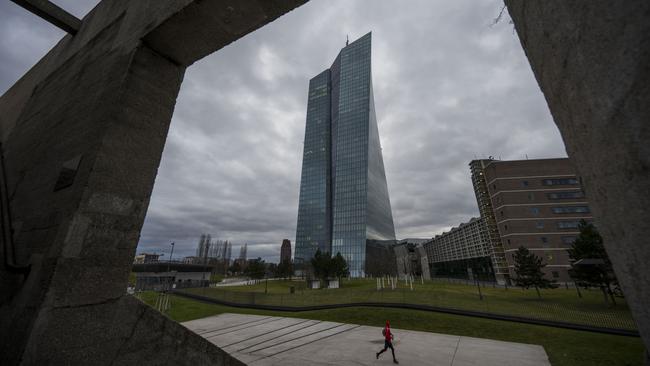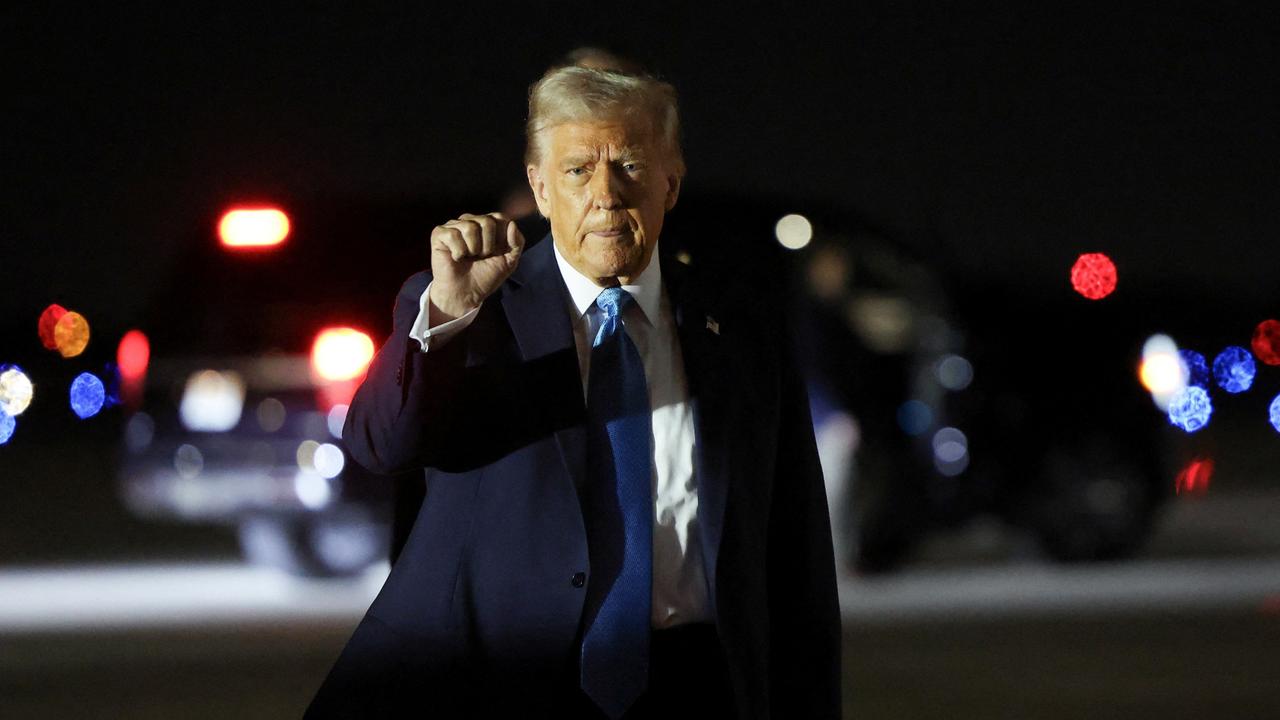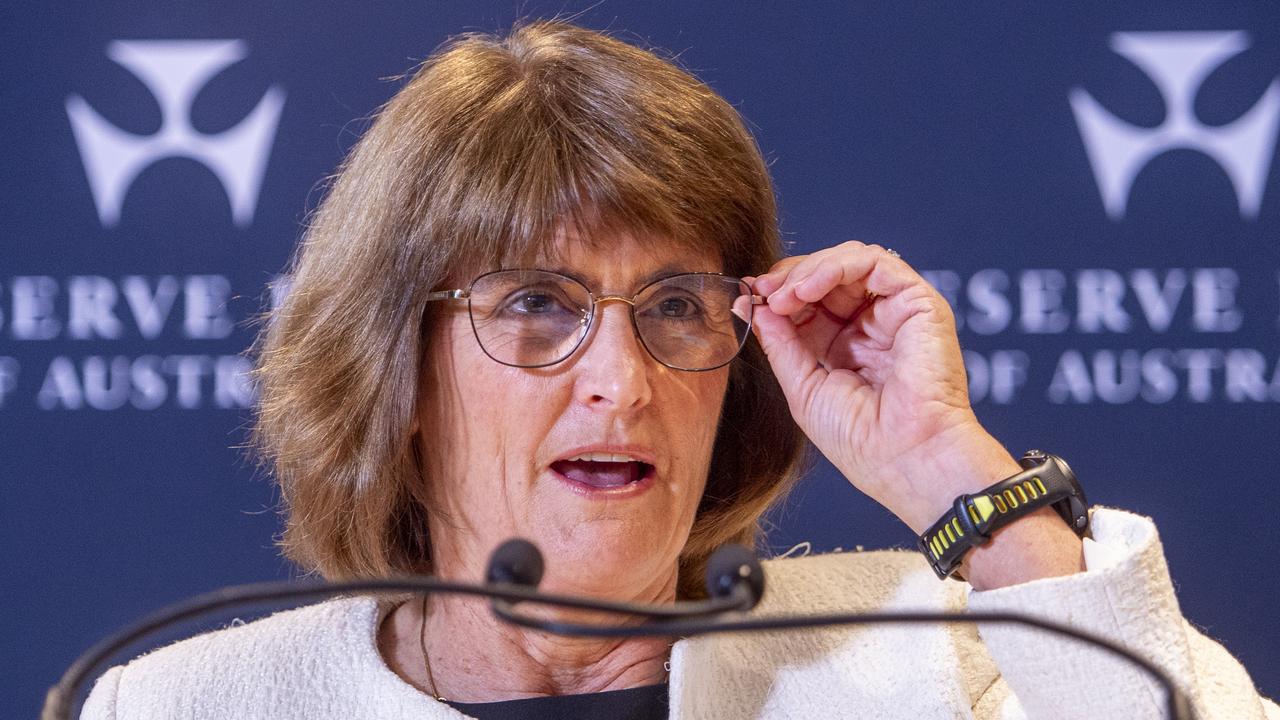Russian troops stir global inflation concerns
The most visible effect is in Europe, where 10-year German bund yields rose this week.

Investors are growing concerned that a Russia-Ukraine conflict could send inflation to new heights as oil broke through the $US100-a-barrel level.
The most visible effect is in Europe, where 10-year German bund yields rose as high as 0.27 per cent this week from negative territory earlier in the year. Europe is in a tricky spot given its reliance on Russian energy supplies and a central bank that has been less aggressive than the Federal Reserve about tightening policy.
The equivalent Treasury bond yield edged up to 1.98 per cent on Wednesday, from 1.95 per cent at the previous day’s close.
Government debt typically rallies in times of turmoil, with yields falling and bond prices rising, as it is seen as a safe investment. But bonds often have fixed cashflows, which lose purchasing power in times of rapid price increases. This is weighing on demand for conventional debt and spurring investors to snap up short-dated inflation-protected bonds.
“This is clearly coming from the push in energy and the Ukraine-Russia story,” said Jorge Garayo, a rates and inflation strategist at Societe Generale.
“It’s a shock effect. It looks like the market is really expecting higher inflation this year.”
Russian President Vladimir Putin ordered troops into two areas of Ukraine that he recognised as independent after a speech earlier this week. The US, the EU and other Western nations rolled out a fresh slate of sanctions and promised more in the event of a full-scale invasion.
Oil prices tempered on Wednesday, but on Thursday Brent crude was trading above $US100 a barrel for the first time since 2014.
Europe is heavily reliant on Russian gas to heat homes and generate electricity. Prices have soared over the past year after Russia supplied only the bare minimum amount of gas to meet long-term contractual obligations. European gas prices are up 27 per cent from last year.
“This should pressure central banks to be more hawkish. We’re now likely to see even more headline inflation,” said James Athey, an investment manager at Abrdn.
In the eurozone, inflation hit a record in January. Energy prices accounted for over half of this, according to the European Central Bank.
Worries over Ukraine’s effect on oil have given fresh energy to expectations in the US that the Federal Reserve will have to act more forcefully to temper inflation. As tensions between Russia and Ukraine escalated in recent days, the chances of a half-percentage-point rate increase next month, rather than a more standard quarter-point increase, rose as high as 41 per cent, according to CME data.
The Fed is expected to raise rates about six times this year, according to Societe Generale.
In Europe, the ECB has been more sanguine. President Christine Lagarde said she was planning to begin normalising monetary policy at a gradual pace. A conflict in Ukraine and disruptions to Europe’s energy supply could weigh on the currency bloc’s growth, which may be seen as a reason by the ECB to keep stimulus in place for longer.
France’s representative on the ECB board said the central bank was monitoring developments in Ukraine closely and that its monetary policy remained flexible.
The combination could lead to slower growth but more persistent inflation. Market pricing of inflation expectations in Germany next year rose above 3 per cent, a multi-year high, as seen in the break-even or spread between inflation-linked and conventional bond yields. It also advanced for 2026, signalling that some investors believe higher inflation could be a longer-term issue.
If the recent bout of rapid price increases becomes more sustained, it would mark a turnaround for the eurozone, which has a long history of sluggish growth and low inflation. This contrasts with the US, where inflation has historically been stronger but where the coming rate increases are expected to temper consumer prices.
“When you have a conflict specifically in an oil-producing region when we are already in an environment of elevated inflation, it really complicates the picture,” Mr Athey said.
John Roe, head of multi-asset funds at Legal & General Investment Management, said the risk of higher inflation boosted by expectations of ECB inaction had been weighing on European government bonds in recent days.
“If we see further escalation in Ukraine, that’s a real income hit for people if we see a prolonged energy price spike, and it’s bad for growth.”
The Wall Street Journal


